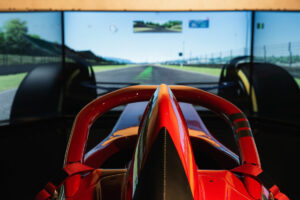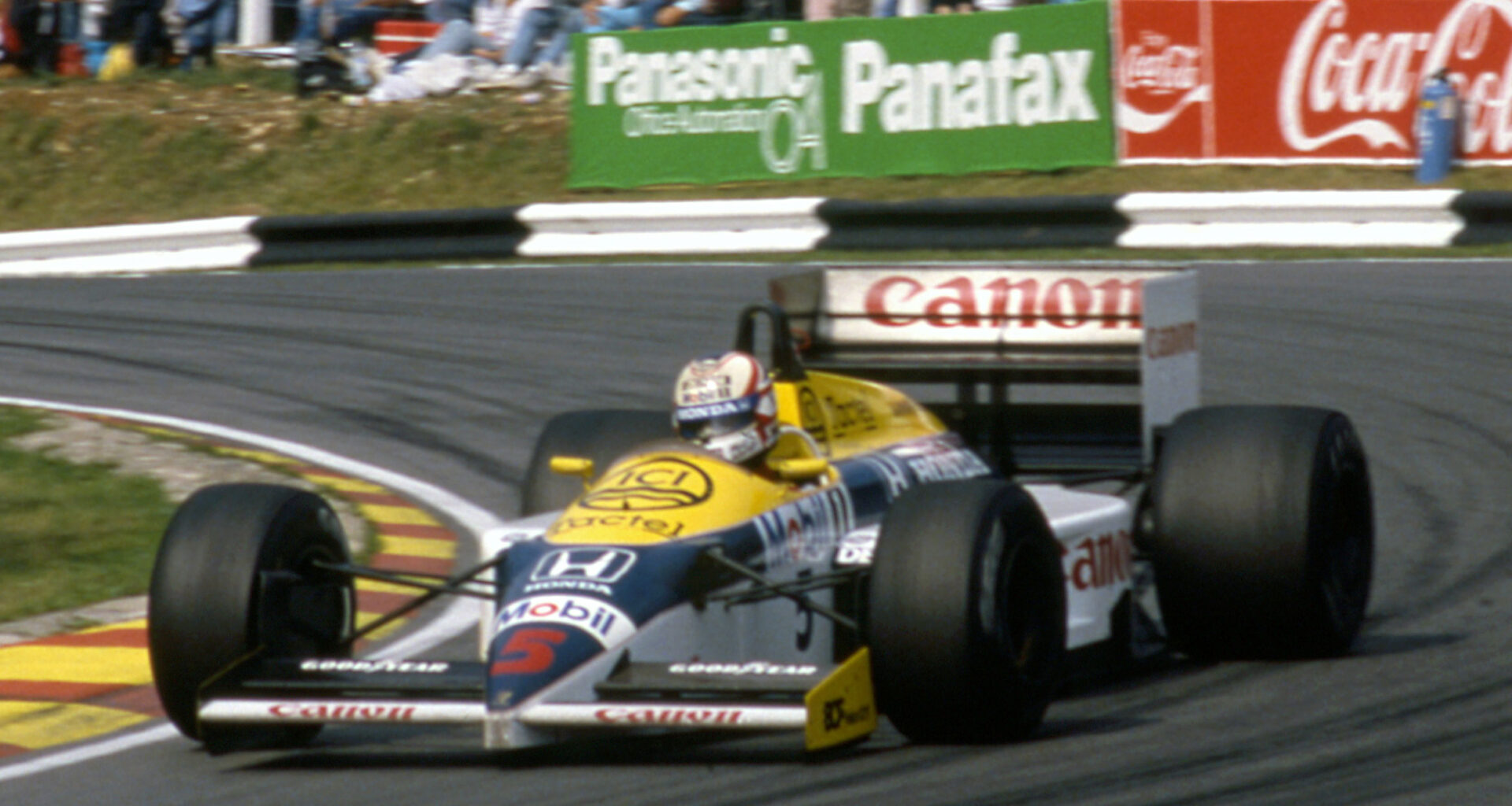Car Details
BRM V16, 1950 Great Britain
The BRM was a milestone on the path to Britain’s dominance of the sport of Formula 1. The car was driven by Juan Manuel Fangio and Stirling Moss and finished in the 1951 British Grand Prix.
Manufacturer: British Racing Motors, Bourne
Owner: National Motor Museum Trust
Lotus 49, 1967 Great Britain
The Lotus 49 was the first car to use the legendary Ford-Cosworth DFV engine, which formed an integral part of the vehicle’s chassis. It won its first race, the 1967 Dutch Grand Prix, driven by Jim Clark. This car, chassis R3, was built overnight for Graham Hill to drive in the 1967 British Grand Prix at Silverstone.
Manufacturer: Team Lotus International Ltd, Hethel
Owner: National Motor Museum Trust
March 761, 1976 Great Britain
The Ford Cosworth DFV powered 761, designed by Robin Herd was driven by Italian drivers Vittorio Brambilla, Lella Lombardi as well as the great Swedish driver Ronnie Peterson – who won the 1976 Italian Grand Prix.
Manufacturer: March Engineering, Bicester
Owner: Ian Cox
Williams FW11 Honda, 1986 Great Britain
The FW11’s turbo-charged 1.5 litre Honda V6 engine was, at the time, the most powerful in F1. Driven by Nelson Piquet and Nigel Mansell who battled Ayrton Senna and Alain Prost for the 1986 championship.
Manufacturer: Williams Grand Prix Engineering, Didcot
Owner: Williams Racing
Williams FW15C Renault, 1993 Great Britain
Designed by Adrian Newey and Patrick Head, the Williams FW15C is one of the most technologically advanced racing cars ever built. Driven by Alain Prost and Damon Hill, it became the dominant car of the 1993 F1 season.
This car, chassis 01, was used for testing and carries the markings of David Coulthard, the Williams test driver for the 1993 and 1994 seasons. Coulthard made his F1 race debut at the 1994 Spanish Grand Prix.
Manufacturer: Williams Grand Prix Engineering, Didcot
Owner: Williams Racing
Jaguar R5, 2004 Great Britain
The Jaguar team had its origins as the Stewart Grand Prix team that had been founded by three-time World Champion Sir Jackie Stewart and his son Paul. The Jaguar R5 was driven in the 2004 season by Mark Weber and Christian Klein. At the end of the 2004 season Ford sold the Jaguar team to Red Bull. As Red Bull Racing the team have gone on to multiple World Championship titles.
Manufacturer: Jaguar Racing F1 Team, Milton Keynes
Owner: Jaguar Daimler Heritage Trust
Ferrari F2002, 2002 Italy
Ferrari have been part of the World Championship since the very beginning in 1950. The Maranello built cars still carry traditional Italian racing red livery. The F2002 was particularly successful, taking Michael Schumacher to ten Grand Prix victories in 2002 and a further victory at the San Marino Grand Prix in the 2003 Championship.
Manufacturer: Scuderia Ferrari, Maranello
Owner: Meridien Modena
Red Bull RB9, 2013 Great Britain
Designed by Adrian Newey, and driven by Sebastian Vettel and Mark Webber, the Red Bull RB9 was the dominant car of the 2013 season. Vettel won 13 races on his way to securing his fourth consecutive World Championship title and Red Bull’s fourth consecutive Constructors’ title. The RB9 was powered by a Renault/Mecachrome V8 engine.
Manufacturer: Red Bull Racing, Milton Keynes Owner: Red Bull Racing
Williams FW43B, 2021 Great Britain
2021 was the first season following the sale of the Williams team to a US investment company by founder Frank Williams. Williams’ drivers for 2021 were Nicholas Latifi and George Russell. Russell was awarded a second place in the Belgian Grand Prix, the first podium finish for Williams since 2017.
The FW43B exhibits many of the features of a modern Formula 1 car, with carbon fibre chassis, hybrid turbo-charged 1.6 litre engine, in this case a Mercedes AMG F1 M12E, and provision for a Halo safety cage, although not currently fitted to this car.
Manufacturer: Williams Racing, Grove
Owner: Williams Racing

Image credit: Wave Italy
About the Formula 1 simulator
The Formula One simulator provides an immersive experience into the world of racing. Large screens and an advanced motion system with reactive belts heighten the experience. Developed in Italy by Wave Italy the simulator is aimed at racing enthusiasts and professional drivers. It uses a sophisticated vibrating system that faithfully reproduces the roughness of the track and curbs. The sim promises to give an ultra-realistic and unforgettable adrenaline rush driving experience.
Bookings can be made at the reception desk in the National Motor Museum. Timed slots are allocated daily on a first-come, first-served basis, and are 15 minutes from 10:30am until 5pm. Height and weight limits apply and the simulators is designed for use by adults; it is a professional-grade racing simulator and a step-up from traditional console racing games. As such, young people and children may find the complexity of the simulator challenging.
Further information on the Icons of Formula 1 display is available here and from www.nationalmotormuseum.org.uk

